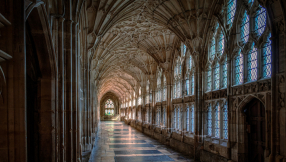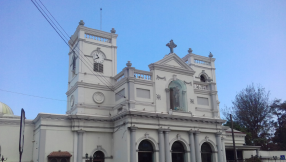
The Archbishop of Canterbury is to meet Global South bishops on Saturday after they announced they would be tabling their own resolution affirming Lambeth 1.10.
Lambeth 1.10 is the resolution passed at the 1998 Lambeth Conference of Anglican bishops that rejected homosexual practice and upheld marriage as a union between a man and a woman for life.
Despite this, a number of provinces have opted to ordain gay, married bishops or permit same-sex weddings. They include the Episcopal Church in America (TEC), the Episcopal Anglican Church of Brazil, the Anglican Church of Canada, the Anglican Church of Aotearoa, New Zealand and Polynesia, the Scottish Episcopal Church and the Church in Wales.
A 'Call on Human Dignity' to be debated at this year's Lambeth Conference next week was amended to remove a reaffirmation of Lambeth 1.10 after a backlash by liberal bishops.
In response, the Global South Fellowship of Anglican Churches (GSFA), will table a resolution of its own affirming Lambeth 1.10 "as the Communion's official teaching on marriage and sexuality".
The resolution will be presented to bishops on Monday. They and the Archbishop of Canterbury will be invited to sign it.
The GSFA said that Lambeth 1.10 "is not just about sex and marriage, but fundamentally about the authority of the Bible which Anglicans believe to be central to faith and order".
Archbishop Justin Badi, Chairman of the GSFA and Archbishop of South Sudan, said he was "grateful" that Archbishop Justin Welby had agreed to meet to discuss the resolution.
He said that walking together as a Communion "must be based on the shared commitment to Holy Scripture".
"To us in our provinces, this is not primarily about gay sexual practices and unions, but rather that Anglicans look first and foremost to be guided in their faith and order by Scripture, and not by the passing cultural waves of Western society," he said.
"Sadly, some provinces are adapting the teaching of the Church to try to appear relevant, and to make discipleship easier as a way of reversing fast-declining church attendance. But as disciples, we are not told in Scripture to mould Jesus into 'our' image, but to be continually transformed by the Spirit into 'His' image.
"For too long the Anglican Communion has been driven by the views of the West. We often feel that our voice is not listened to, or respected. We invite each primate and bishop to sign up to our resolution, and then with the majority of the Communion in favour, for the Instruments of the Anglican Communion to find ways to put faith and order back at the heart of what the Archbishop of Canterbury describes as 'walking together'.
"Today in Canterbury, we may be 'gathered together', but we most certainly cannot 'walk together' until provinces which have gone against Scripture - and the will of the consensus of the bishops - repent and return to orthodoxy. The Communion is not in a healthy condition at present, and only major surgery will put that right."
Archbishop James Wong, Archbishop of the Province of Indian Ocean added: "At this conference, we are being asked to look at the needs of our broken the world, and to offer hope. But we cannot mend a broken world when the Anglican Church is so broken and fractured.
"All provinces must remember that they are part of one body, and one Communion. Unfortunately, some provinces put emphasis on being autonomous, and forget the necessity of being interdependent."
The bishops have also announced their intention to refrain from partaking in communion at the opening and closing services of the Lambeth Conference.
The spouses of gay bishops were not invited to take part in the official spouses' programme of the conference but will be allowed to attend the services.
Archbishop Badi added: "GSFA primates will be discussing the services with their bishops, but all orthodox bishops will be encouraged to remain in their seats when others go to receive the bread and wine. This will be the start of a number of 'visual differentials' as we move forward from this conference."













